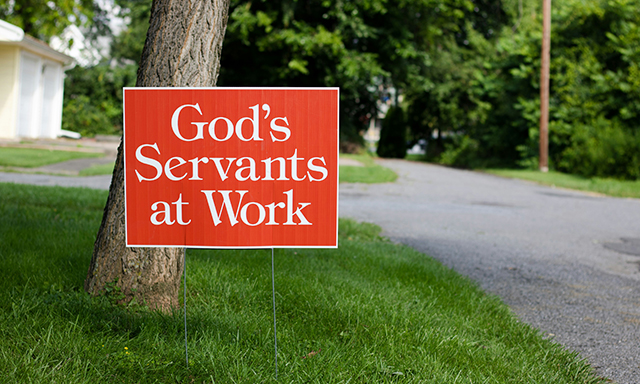Look carefully then how you walk, not as unwise but as wise, making the best use of the time, because the days are evil. Therefore do not be foolish, but understand what the will of the Lord is. And do not get drunk with wine, for that is debauchery, but be filled with the Spirit, addressing one another in psalms and hymns and spiritual songs, singing and making melody to the Lord with your heart, giving thanks always and for everything to God the Father in the name of our Lord Jesus Christ, submitting to one another out of reverence for Christ. | Ephesians 5:15–21
This Sunday, I preached on the relationship between the pastor and the congregation. In it, I said that those who lead the church are given by God as a gift to the members, and that the pastor will give an account for the job that is done. Likewise, he will present the people who have been nurtured in his care to Jesus as the offering of his life’s work – every person in the church can either make this a joy or a burden.
Along with this, the pastor has the ability to guide the direction of the church through living a life above reproach. And (this is the part I think we overlook) the members are able to encourage and steer the leadership through their faithfulness. As the positive report from Thessalonica comes back to Paul, he is comforted and motivated in the task that God has given him to do. Their commitment to God in the face of affliction helped Paul to be a better leader of God’s people.
The Bible takes this a step further, showing us that this is true in all of our relationships. Whether we are in the place of the parent or child, husband or wife, employer or employee, governor or citizen, living out the role that God has placed us, in an honorable way, is the means to enact lasting effect. God gives imperatives to both the person called to lead and the one called to be led. Both of these are a position of power. It is power because it is working together with the sovereign God of the universe to instill His order in the world.
This is not how we think about being ‘change’ in the world. We have been raised to side with the rebels in the rebellion, to wear t-shirts with the face of revolutionaries, and we are told that: well-behaved women seldom make history. This leaves us with the idea that to do meaningful work means overthrowing power structures and resisting authority (I wrote about my issue with this posture in a past BLOG). We are told that silence is violence, so that you feel like all inactivity is harmful. We are told that ‘minding your own business’ makes you part of the problem (even though the Bible tells us that this is a GOAL). All of this makes us feel like actively fighting against authority is the only way to subdue the earth and to join Jesus in His work of redemption.
I want to make it clear that a life of quiet faithfulness is not just a good thing, but it is the means by which God does the majority of His work. Some people will be placed in situations where they are required to revolt against authority, in the service of God. This is minute compared to the everyday faithfulness that He has tasked every Christian with. Our posture should not be one of resistance, looking for the bad things to stand against. Instead, we should find the good to celebrate and encourage, as we commit ourselves to good works that bring glory to God and move the hearts of others to serve Him.
I love how Paul puts it in the verse at the top: giving thanks always and for everything to God the Father in the name of our Lord Jesus Christ, submitting to one another out of reverence for Christ.
This mutual submission is not about giving everyone equal authority, but honoring the role that God has placed others in and helping them to do that role to His glory. May we be this kind of change in this sinful world.

